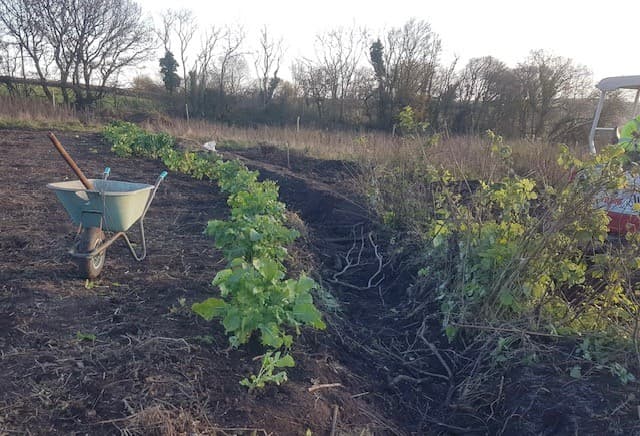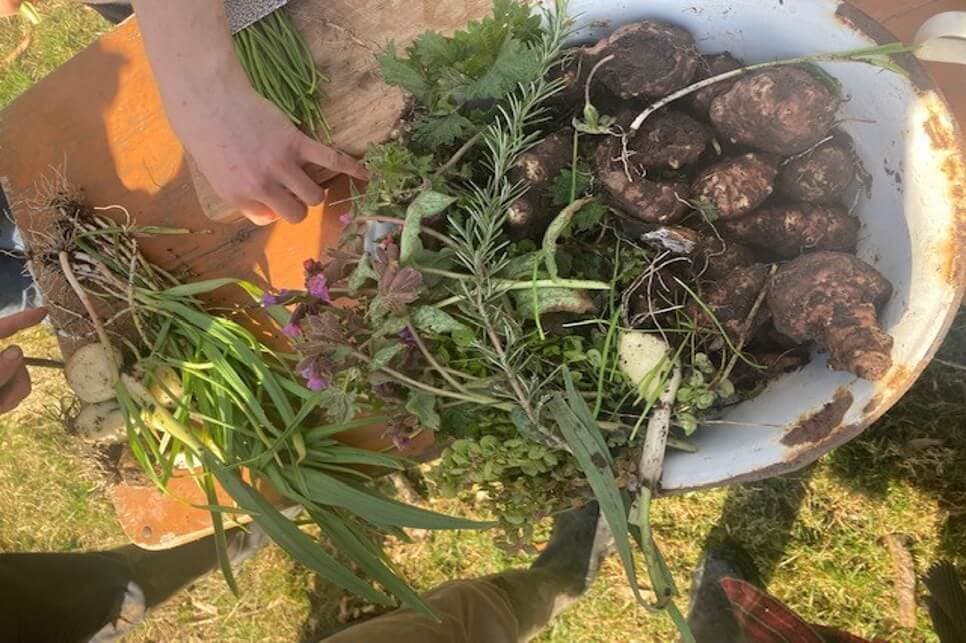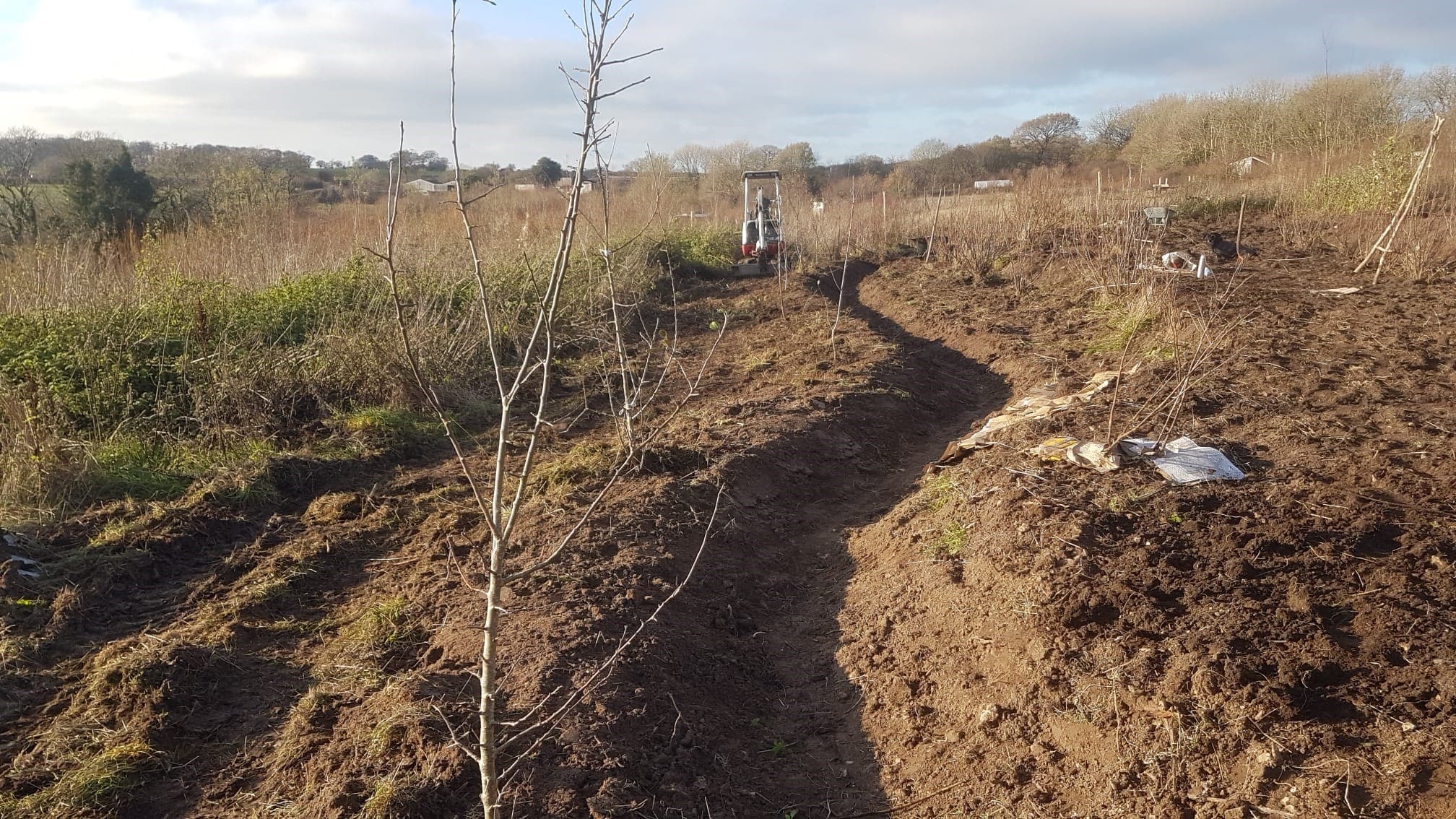Simple solutions exist for preventing flooding, pest problems, and polluted water from entering our rivers, that can support biodiversity whilst doing so. Implementing swales in East Devon, where this project takes place, will filter and slow the flow of water to the Sid River Basin.
The land at Stoney Orchard can often experience up to 4 months of drought, especially in early spring – the same pattern has occurred for the last 3 years and a system is required to offer the land more resilience. When the rain does hit, it quickly runs off the land, entering bodies of water without pollutants being filtered. Due to water run-off, water is not absorbed deeply into the soil, leaving the top layer dry and vulnerable in the warmer months, and losing its ability to absorb carbon.
On top of this, local farming in East Devon and the effect of pesticides is having devastating effects on fauna in the area, and the land has noticed a dramatic reduction in fauna year on year. When faced with issues such as pests, farmers lack a support network to learn skills and techniques on how to overcome these in a way that maintains environmental health. With farming a dominant industry in Devon, there is a need for communication and skill-sharing between land owners to manage pests without excessive use of pesticides.
Digging a swale and moving water across the contours of the land will increase its ability to absorb water, feed shrubs and planting systems, and regenerate the soil structure with a network of trees and deep-rooted plants. Collecting the rainwater on the land at Stoney Orchard will prevent sites such as the wildflower meadow from being polluted, and divert it to trees that need water. The swale system will provide wetland areas and shelter for amphibians as well as more log and compost piles for reptiles and hedgehogs, and these species will tackle pest problems without the use of pesticides. Farmers and landowners can witness a system for overcoming pest issues in a way that encourages biodiversity and regenerates the land, and replicate this within their own context.
Swales will also increase resilience of the land and reduce the effects of extreme weather such as wind, sun and rainstorms. Whilst the swale itself will prevent water run-off and flooding, surrounding trees and shrubs will create windbreaks and protection from the sun. Windbreak will in turn create microclimates that will be less harsh in winter and cooler in the summer, creating ideal climates for biodiversity to thrive.
Stoney Orchard is an organisation that has been stewarding 13 acres of land for over 10 years. Their team are individuals dedicated to transitioning to agroecology, with backgrounds in geology, permaculture, flood prevention and community engagement. Over the years, they have introduced 3 acres of woodland, 4 acres of wildflower meadows, and 4 acres left for rewilding. The Foundation is pleased to be supporting Stoney Orchard to develop their swale system and to promote its potential to other landowners.



